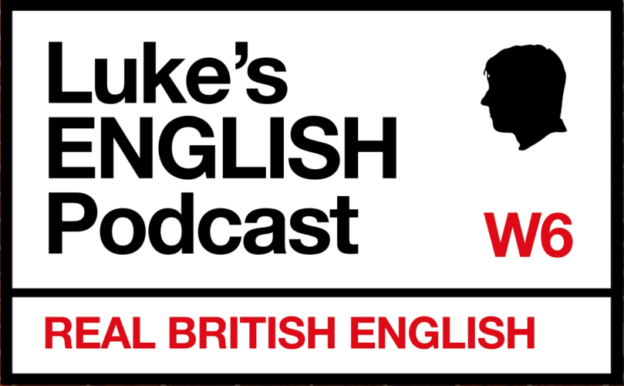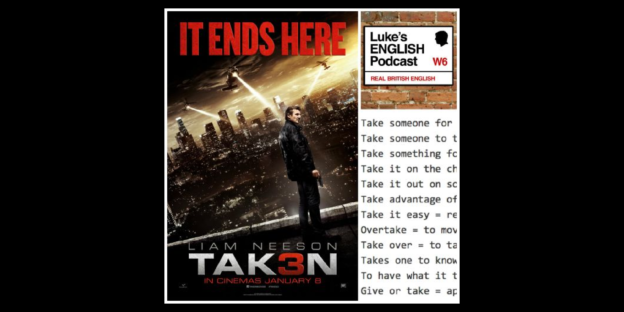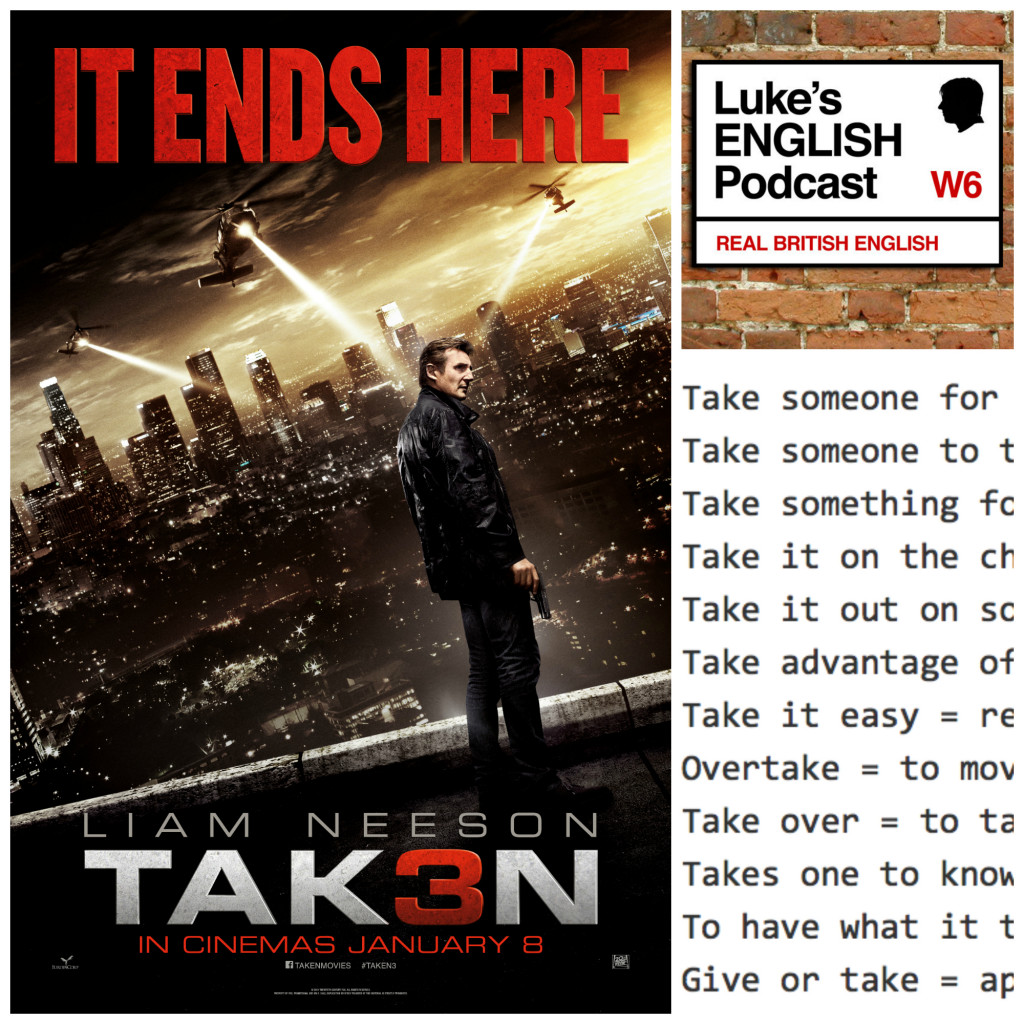Hello everyone, welcome back to the podcast. I hope you’re doing alright today. Do you remember that in the last episode I had just come back from seeing the latest Marvel movie – Captain America: Civil War, and that I said I would talk to you about it? Remember that? Well here it is. You are now listening to a new episode of Luke’s Film Club, and this time I’m talking about the Marvel movies with a particular focus on the latest Captain America film. By the way, I’m going to talk about a lot of Marvel movies in this episode and I will do my best to avoid spoilers. I am only going to mention information which is basically common knowledge. I don’t think listening to this will really spoil your enjoyment of any of the films in the marvel universe. So, you shouldn’t worry about spoilers.
[DOWNLOAD] Groovy background music c/o www.bensound.com
Why am I talking about Marvel films and superheroes?
We like movie-related episodes, don’t we? I certainly like to record them and it seems that you like to listen to them. Enough said – but I’ll continue. I call these episodes “Luke’s Film Club” and in the past I’ve covered films like Taken, Kingsman, Star Wars, Back to the Future and others. Also, people like movies don’t they? People like movies. I like movies, you like movies, we like movies – everyone likes movies. Therefore, talking about movies seems to be a natural thing to do. And to bring this back to learning English, perhaps you will end up talking about movies in your English conversations, so you should know how to talk about this subject. It’s probably helpful to listen to me talking about films then isn’t it? We all know that listening is connected to your awareness of how speech is produced, which is connected to pronunciation, which is connected to your own production of speech. So – improving your listening will have a knock-on effect on your speaking. Also, if you’re wondering what to talk about with people you meet, or your language partner or teacher on italki for example – this could be a good idea.
In fact, you could start your conversations with typical questions about movies.
“Have you seen the latest Marvel movie?” or “Do you like superhero movies?”
“What have you been up to?” – “Well, I saw the new Captain America film” – “Oh really, how was it?” etc.
Those might be some good starting points for conversations about super heroes.
So, have you seen the new Captain America film? In fact, have you seen any Marvel films or recent superhero movies?
I’d be surprised if you hadn’t, because they’re really popular these days and there are so many of them that they’re kind of unavoidable. But if you haven’t seen Iron Man, The Incredible Hulk, Captain America or The Avengers then that’s ok. Perhaps this episode can be a sort of introduction to a film series that you’re not familiar with. And if you have seen some Marvel films and you just can’t stand them – well, perhaps listening to my take on this subject might help to change your mind. And, if you have seen most of these superhero films and you pretty much liked them, then great! In any case, I hope you just enjoy listening to me going on about some popular culture in this episode (or episodes).
There are plenty of good reasons to talk about Marvel films, but I was prompted to do this episode by a request from a listener called Mayumi. Hello Mayumi, yes I am mentioning you again. It seems Mayumi is a bit of a film nut like me – you might remember her Star Wars themed photo in the photo competition recently. Here’s her comment from my website just the other day.
Mayumi’s comment
“Hi Luke, I hope you’re well. Recently, I’ve been missing your movie episodes like the one you did about “Taken”. The new Marvel one just came out and have you already seen that? If so, how was it?? If my memory serves, you haven’t talked much about Marvel things yet, have you? I’d love to listen to your thoughts if you like them! I personally enjoy watching Marvel films often because I don’t have to be too emotional or worried and it’s fun to watch great VFX. Cheers, bye!”
So – talk about Marvel movies, superhero stuff and Captain America? OK!
I’m not a megageek, I’m just a bit of a geek. I enjoy Marvel films but I’m not a complete fanboy. (Define: nerd, geek, fanboy) I am a fan of comic book films but I don’t profess to be an expert on all the history of every comic book character. I’m not that emotionally invested in superheroes and their stories in the same way that some of these fanboys are. I mean, I’m not going to get angry if the movies don’t follow the plot of the comics perfectly. I don’t mind about that. I just want to watch some entertaining films.
So, I’m not a fanboy but I am a fan. Also, I do have friends who are fanboys – like my mate Paul Langton who knows loads about comic book characters, including all their original backstories, the origins of their superpowers, who would be the champion if they all had a big fight and everything like that. In fact I spoke to Paul about superheroes on the podcast just yesterday, and you’ll be able to hear that conversation on the podcast soon.
So I’m no expert but I’ve seen most of the films and I’ve read some of the comics.
Loved comics as a kid, but my parents frowned on them. I couldn’t really justify spending all my pocket money on comics, and anyway I had nowhere to buy them because I grew up in the middle of nowhere.
I had a few comics, which I bought when on holiday in the USA.
The Marvel characters were the best.
I was always a bit of a Spiderman fan.
I thought Iron Man looked wickedly cool but I never read any of his comics.
I also used to have an Incredible Hulk t-shirt, which pretty much made me a fan by default. I used to chase my brother and his friend around the house wearing the hulk t-shirt and they’d run away from me like I was the hulk. Good times.
Marvel TV shows and cartoons – Any time a comic book related TV show came on the TV it was always brilliant. The Incredible Hulk TV show was a classic – that one featured classic moments when Bruce Banner turned into the Hulk and you see his clothes tearing and his skin turning green – and the hulk was played by a body builder called Lou Ferrino and the hulk scenes were mostly shot in slow motion to make him seem heavier. It was funny that all his clothes ripped off except his pants. They somehow stretched. The Incredible Hulk TV show was also incredibly sad – because at the end of every episode he had to leave town. He was very lonely, and there was that lonely music. I think that communicated loneliness pretty effectively, even as a kid.
There was a live-action spiderman show too, which was awesome because, well, it was spiderman – and he was full of wisecracks and the usual fun Spiderman stuff. Also there were animated TV series, particularly the X-Men series and another Spiderman series. There were probably other Marvel-related TV shows and some movies as well that I saw as a kid.
By today’s standards they would look terribly crap, but in those days they were just amazing.
Marvel Movies vs DC Movies
DC has the two most famous characters, but Marvel seem to be winning the movie wars. Other than Batman, Superman and perhaps Wonder Woman – the other DC characters are not that great – but I’m sure there are people listening to this who would disagree with me. We will be seeing more from DC in the future, with films like Suicide Squad this year, Aquaman, Wonder Woman and more.
Yes – just when you thought we couldn’t have any more superhero films, the next few years are going to see even more of them, so get ready. Marvel are in full swing and DC have only just got started. I wonder if we’ll all be fed up with superheroes within a couple of years. “Superhero fatigue” – it’s a genuine concept that movie critics and industry people use to refer to the idea that we might all just get fed up with superhero films and then stop watching them. The phrase was used over the last couple of years, after a couple of superhero movies didn’t do as well as expected. For example, last year there was a Fantastic Four movie, produced by Fox – and it was a huge flop. Also, the Avengers sequel “The Age of Ultron” didn’t take as much money as people predicted. Personally I think superhero fatigue is a myth. There is clearly still a big interest in superhero films, especially if they are done right. Fantastic Four was a failure because of casting decisions and because it was, by all accounts, a really bad film. And anyway – perhaps those particular characters are not that interesting. They certainly weren’t presented as very interesting. That film is an exception. Avengers: Age of Ultron might have taken less money than the previous one, but perhaps the bar has been set very high! Anyway, regardless of last year, this year has been a hit for superhero movies and Captain America Civil War has apparently been smashing box office records for Marvel yet again.
In my opinion – Hollywood has been producing superhero movies for quite a long time now, but it’s only recently that they’ve been any good. I feel like Marvel studios have cracked the code for superhero movies now – and finally the fun, action and character development that we enjoyed in the comic books is now translating onto the big screen. Not that we haven’t had good superhero movies before (Some Batman movies have been good – I’ll come on to that in a moment) it’s just that in my opinion they’re now getting better and better.
Superhero movies in the past – A kind of history of superhero films
Superman movies from the 80s, with Christopher Reeve (and Gene Hackman).
Batman movie from the 60s, then the 90s films – Tim Burton & Michael Keaton – two good films, then the franchise went steadily downhill as the films were directed by Joel Schumacher – culminating in the god-awful “Batman & Robin” in 1997.
Arnold Schwarzenegger as Mr Freeze? “Everybody freeze!” and “Ice to see you!” etc. Terrible.
Also in 1990 there was a great superhero film called Darkman which stars Liam Neeson. It’s directed by Sam Raimi, who later did the Spiderman films. It’s brilliant and I suggest you find it. Liam Neeson, Darkman. Apparently it’s on Netflix – find it, hunt it down, and watch it.
There was another couple of Fantastic Four movies in the early 2000s. Unremarkable and original, except that Chris Evans played the human torch, and now he’s Captain America. He’s probably the only actor to have played two different Marvel characters.
Ang Lee directed a Hulk movie (most people dislike it), Sam Raimi directed a trilogy of Spiderman films (most people like them). More on those films later.
Also, there have been loads of X-Men films which have done relatively well in the box office.
One thing to note here is that Marvel studios don’t own the rights to all their characters in movies. In fact, before Marvel became a film studio, they were still a comic book publisher and in the 90s and 2000s they were seriously running out of money, so they sold the movie rights for a few characters to different film studios. Spiderman was sold to Sony, X-Men was sold to Fox. The result was that these studios made superhero films in their own way.
I expect Marvel watched those films and thought – we could do better than this. Later they managed to set up Marvel studios and start producing their own movies, with characters they still had the movie rights for – The Avengers, basically. That caught everyone by surprise, because… they were good films. More on that in a bit.
Now, back to the pre-MCU movies
Christopher Nolan revived the Batman franchise in the 2000s with Batman Begins and then The Dark Knight, also The Dark Knight Rises. They were ‘game changers’ for the superhero genre. They were very serious, had adult-themes, dealt with complex morality and gave the genre a sense of weight and quality, rather than being just colourful kids films.
There was a new Superman film called “Superman Returns”, which was basically another origins story.
The main success seems to have been Christopher Nolan’s Batman trilogy.
DC have brought back Superman, letting Christopher Nolan produce the film “Man of Steel” a couple of years ago, and more recently the film “Batman vs Superman: Dawn of Justice”. Although they have their fans, those new Superman films are considered to be flops I think. Man of Steel divided opinion, and Batman vs Superman seems generally to be considered as a flop.
DC are going to make other films based on their other characters, and eventually create a Justice League film which is a sort of showcase of all the main DC characters in one movie together.
It seems like a very similar strategy to the one Marvel are using, except that most of the films they’ve done so far have been crap except for a couple of Batman movies. That’s debatable of course – some thought that Man of Steel was alright. I thought it was half good. I liked the character development – like the scenes with Kevin Costner. But the action scenes took me out of the movie. I felt emotionally unengaged with a lot of it, I thought the Louis Lane character was underused and again it felt far too serious than it should be. I haven’t seen Batman vs Superman, but it seems that critical reaction to that film is also mixed.
What do you think? Have you seen the new Superman films? Superman vs Batman? Give me your quick movie review to any of the films I’m talking about here.
So, DC are still struggling to get a grip on the movie universe in the same way as Marvel, although I expect both of those Superman films have taken a lot of money, even if they’re not that good – because people want to see Batman fight Superman, right? Perhaps DC’s next film release, Suicide Squad will be really popular with fans. We’ll see. Let’s say that DC are still finding their feet at this moment.
Marvel on the other hand are doing really well today. They’re now into Phase 3 of their movie series (yes, we’ve already had phase 1 and 2) and so far they’ve managed to not only avoid any genuine flops, but they have also made a few really successful films and they seem to be getting better. Captain America Civil War is a big hit with audiences, critics and the box office.
So what’s the story of the Marvel cinematic universe?
Around 10-15 years ago Marvel decided to make movies themselves. Previously they were comic book publishers who licensed their characters to other studios, with fairly mixed results – some good films, some bad – on the whole it’s been inconsistent. E.g. Sony have made a bunch of Spiderman films. First there were the ones with Tobey Maguire, directed by Sam Raimi. They rebooted the franchise, starting from the beginning – telling the origin story of Spiderman and then having him grow up and deal with all the usual problems that Spiderman faces as a young superhero in the big city. Then Sony decided to re-reboot the franchise with Andrew Garflield in the role of Spiderman. I guess that was simply because audiences love Spiderman, and the studio felt like it could make a bunch of new money by essentially telling the same story all over again. It feels like Spiderman has been rebooted so many times that every Spiderman film is basically telling us the same story every time, but audiences love Spiderman so much that we don’t really mind. In fact, Spiderman has now been rebooted AGAIN in this latest Captain America film. I think Marvel managed to negotiate with Sony in order to get Spiderman in the Avengers universe. Well done Marvel, because the addition of Spiderman is a very popular move and it’s bound to please audiences and accountants at Marvel headquarters. And yes, we’re going to have a new solo Spiderman film at some point soon which is some sort of collaboration between Marvel and Sony, and that looks pretty promising because I think they have finally got Spiderman right in this latest film.
How are you doing everyone? Are you confused yet with all these different superheroes and their movie franchises? I hope you’re not suffering from superhero fatigue.











